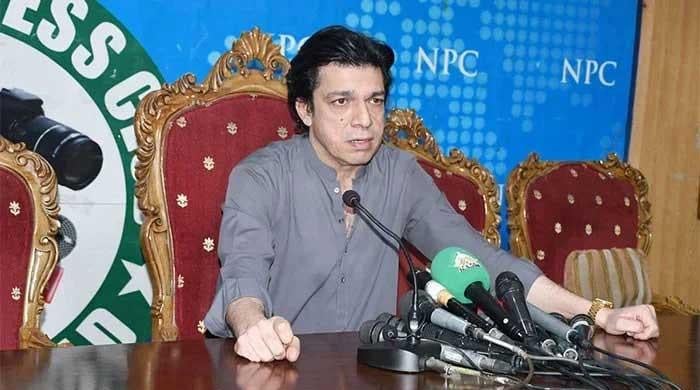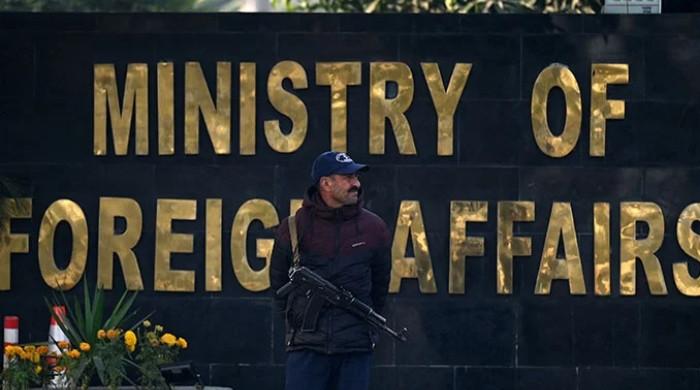BLOG: 'Record-breaking' PSP rally fails to break any records
In its first public rally, the PSP lacked an identity, borrowing heavily from the party it parted ways with and combining it under the banner of popular jingoism
April 25, 2016
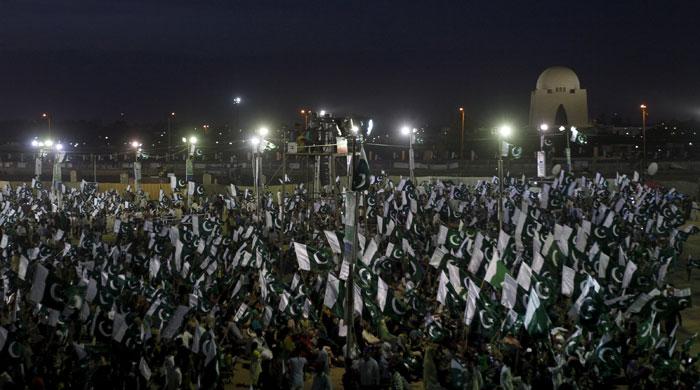
Bagh-e-Jinnah, where Mustafa Kamal held the first mass political gathering of his newly-found Pak Sarzameen Party, is no stranger to such events. The barren piece of land adjacent to the Quaid's mausoleum has become a Hyde Park of sorts for Karachi—a place where political parties flex their muscle by a show of strength in numbers.
But if numbers alone are a criterion for a political party's success, then the numbers on Sunday were not telling. Contrary to Kamal's claim of breaking 'world records', around two to three thousand party members huddled inside a tent that took up one quarter of the ground.
Flashback to October 18, 2014, when the young Bilawal Bhutto-Zardari, co-chairman of the Pakistan People’s Party, addressed a jam-packed Bagh-e-Jinnah ground in broken Urdu. His first and only public gathering in Karachi had attracted supporters from far-flung areas of rural Sindh. Many had come to catch a glimpse of the young Bhutto, who they called “Bibi's Shadow”. The rally—which claimed to complete Benazir Bhutto’s journey left unfinished by the Karsaz Bombing—welled emotions in the participants.
In 2013, the now-on-the-run General (retd) Pervez Musharraf addressed his supporters through a video conference. His supporters did not know why they were there. There were no party anthems. There were no party slogans. And as abruptly as it had started, the political party died its own death.
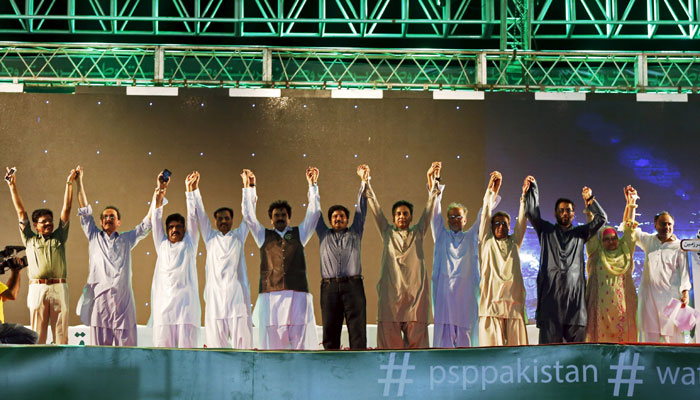
As part of its campaign for the 2013 general elections, the Pakistan Tehrik-e-Insaf must have made the till-then all-powerful Muttahida Qaumi Movement uncomfortable with the massive turnout they had managed to pull. The hip, young crowd included women clad in jeans and tees, and some television celebrities including the popular host Anoushey Ashraf. For PTI, its strength was politicizing the once apolitical class of Karachi.
If, in the Pak Sarzameen Party rally, the numbers were not too many, the crowd was young and energetic.
Its leaders began their address by thanking all the cameramen, technicians and reporters for gracing the event —much like the MQM, the party they all share a common enemy in, does.
The PSP had managed to bring out new party anthems, but its supporters—mostly breakaways from the MQM—borrowed the old MQM slogan for its founder “Kamal hai, Kamal hai, Mustafa Kamal hai”.
When former MQM MPA Bilquis Mukhtar was invited on stage, she was addressed as ‘Baji’— the pseudonym the MQM used to address senior women leaders.
The supporters did not know why they were there—for the 'Mohajir cause', which they once supported, had been done away with under the 'one-party flag for all of Pakistan' mantra. They muttered weak explanations such as “PSP is the new face for Pakistan”.
And Kamal’s address did not answer their questions. He said he would talk about the party manifesto "some other time", but stressed the importance of local bodies elections and union councils—something that the MQM had already managed to establish in the city.
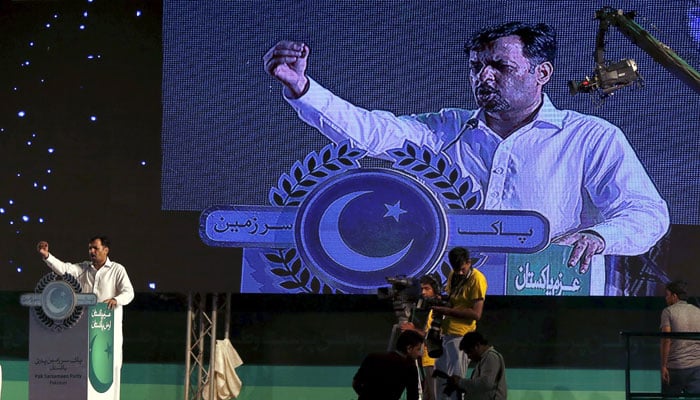
Nevertheless, the supporters loved Kamal. When he spoke, they applauded at the right pauses. They cheered, but perhaps not with the almost religious reverence Altaf Hussain garnered.
In its first public rally, the PSP lacked an identity. It borrowed heavily from the party it parted ways with—and combined it under the banner of popular jingoism. Like old wine in new bottles, the PSP looked like the old MQM only under a new name.
—Sidrah Roghay is a Producer at Geo News







